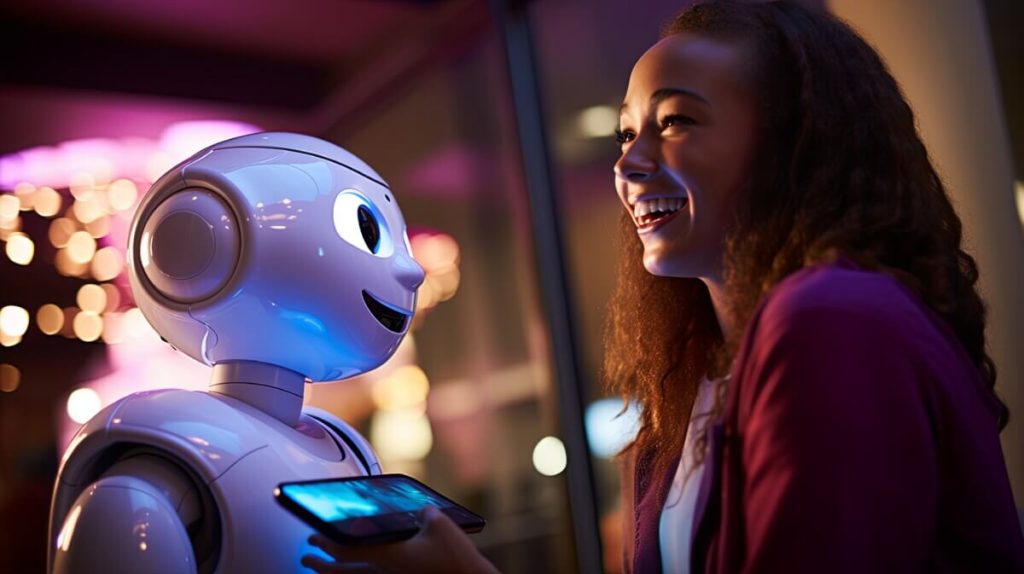AI in Comedy: How Artificial Intelligence is Shaping the Future of Jokes
3 min read

Artificial Intelligence (AI) is making its mark in the world of comedy, with comedians increasingly turning to technology to craft and refine their material. One notable example is Anesti Danelis, a Canadian comedian who has integrated AI into his creative process for his show, “Artificially Intelligent,” which he performed at the Edinburgh Festival Fringe.
Danelis, who previously lived in Los Angeles and became a U.S. citizen in 2021, utilized the AI chatbot ChatGPT to help develop his show. He was initially drawn to the AI’s ability to generate amusing content, despite some of the results being less than stellar. “The AI’s suggestions were sometimes hilariously terrible, but they also sparked ideas I hadn’t considered,” Danelis noted. He used the AI for brainstorming and structuring his performance, including generating songs and monologues. Despite the AI’s contribution, Danelis emphasized that the show still relied heavily on his personal delivery and interaction with the audience.
The integration of AI into comedy is not without its critics. Audience members like Olivia Smith and Bethany Radford have expressed mixed feelings. Smith, though skeptical about AI, appreciated its creative use in Danelis’s show. Radford, an actor, also supported the creative application of AI but stressed the importance of transparency about its involvement. Both acknowledged that while AI can play a role in comedy, human creativity remains essential.
Recent research from the University of Southern California suggests that AI-generated jokes may outperform those written by humans. However, Radford expressed doubt about AI’s current ability to fully replicate human wit, noting that people can often detect when AI lacks a genuine human touch. She believes that as AI evolves, its ability to mimic human creativity will improve.
 The comedy industry is thriving, with significant growth in ticket sales and overall market value. According to Pollstar, U.S. comedy ticket sales reached $900 million in 2023, a substantial increase from $371 million in 2012. In the UK, live comedy contributes over £1 billion annually to the economy, encompassing ticket sales, venue revenues, and local economic benefits.
The comedy industry is thriving, with significant growth in ticket sales and overall market value. According to Pollstar, U.S. comedy ticket sales reached $900 million in 2023, a substantial increase from $371 million in 2012. In the UK, live comedy contributes over £1 billion annually to the economy, encompassing ticket sales, venue revenues, and local economic benefits.
Viv Ford, a U.S. comedian performing at the Edinburgh Festival Fringe, also engages with AI, though in a different capacity. She tests her material on ChatGPT to gauge its humor, finding that while the AI’s feedback can be hit or miss, it often highlights aspects that need improvement. Ford’s experience in San Francisco, where she was exposed to numerous tech companies, has led her to view AI as a useful tool rather than a threat.
However, not all comedians are enthusiastic about AI. James Roque, a Kiwi-Filipino comedian also performing in Edinburgh, is skeptical about AI’s role in comedy. He argues that true humor is deeply human and vulnerable, qualities that AI cannot replicate. Roque believes audiences can discern when a performance lacks authenticity and may react negatively to material generated by AI.
The future of AI in comedy remains uncertain. Danelis, despite his positive experience with AI, is cautious about its potential to become a crutch for new comedians. He worries that over-reliance on AI could lead to a homogenized style of comedy, with emerging comedians producing repetitive or derivative material. “AI can be a helpful tool for established comedians who already have a distinctive voice,” Danelis explained. “But for newcomers, it’s important to develop a unique perspective without relying too heavily on AI.”
As AI continues to advance, its impact on comedy will likely evolve. While it offers new possibilities for joke writing and performance, the balance between human creativity and technological assistance will be crucial in shaping the future of comedy.